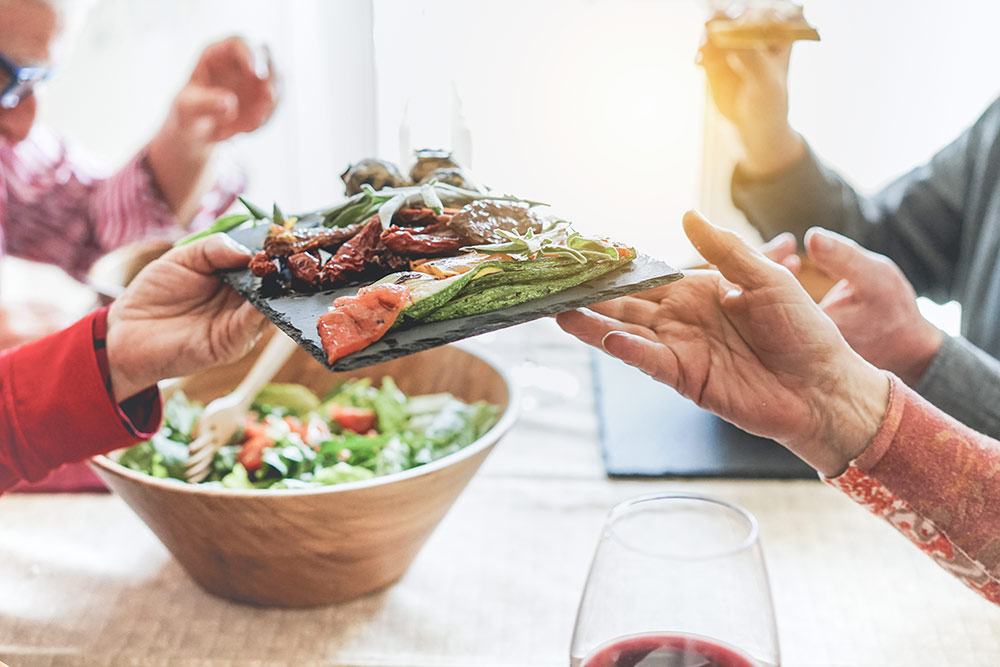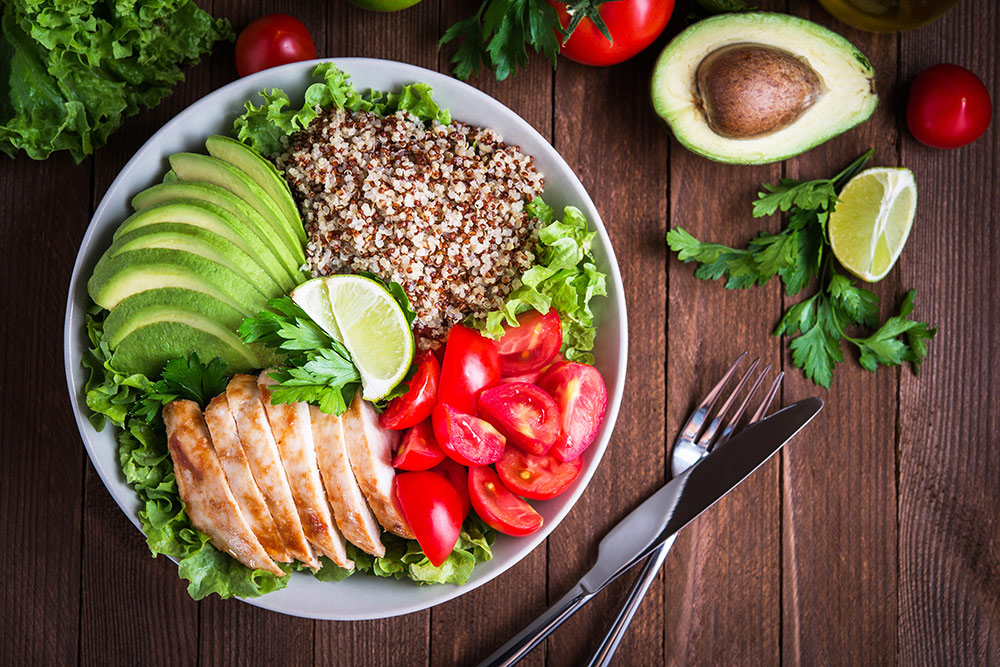Healthy eating is the primary foundation of a healthy life no matter what age you are, but more so as you near seniorhood.
As you age, your body goes through many changes that can make you vulnerable to vitamin and mineral deficiencies. Furthermore, aging also affects your digestive function, sense of thirst, and muscle health. That’s why it is essential to know your nutritional needs and adapt to new eating habits depending on your age.
For example, seniors need to eat more foods rich in protein because they lose almost 8% of their muscle mass as they age. Or that they need to eat fewer calories because their metabolism cannot handle too much of it.
The food you eat will significantly impact your health and nutrition as you age, so watch out for what you put into your everyday meals.
Whether you live alone, with your family, or in a nearby Carlsbad senior living community, it’s important to learn the healthy eating habits seniors like you need to practice.
So, here are five effective and proven tips on how to eat healthily!
1. Focus on Eating Nutrient-Rich Foods
Your metabolism is not the same as it was twenty years ago. It won’t absorb much of the calories you eat, so if you continue your unhealthy ways, you could quickly gain extra fat and become vulnerable to plenty of diseases.
This is why you need to tone down your calorie intake and replace it with more nutrients like vitamins, minerals, protein, fiber, and good carbohydrates. You can do this by following some of these pieces of advice:
- Eat a variety of foods. A healthy plate should look like a rainbow—with brown rice, lean white meat, and plenty of greens on the side. Also, stack up on nuts, seeds, beans, and low-fat dairy products.
- Invest in fruits and veggies. Leafy, green vegetables, blueberries, oranges, and apples are some of the best sources of fiber, antioxidants, and B vitamins. You need these nutrients to maintain your brain and digestive health.
- Choose low-fat protein sources. You need protein to compensate for your age-related muscle loss. Get this from lean meats, eggs, seafood, and soy products.
- Eat healthy fats. Obtain your much-needed omega 3 fats from salmon, mackerel, tuna, canola oil, olive oil, and avocado. You need them to support your brain and heart health.
- Eat smaller portions throughout the day. Prevent nutrient deficiency by eating smaller meals five times a day instead of three heavy meals daily.
- Follow the recommended daily intake for seniors. Healthy eating means you consume the right amount of servings of nutrients per meal.
If you have no idea what kind of foods and how much you should eat, then you can get the help of a registered nutritionist. Also, you can ask your staff or caregiver in your Carlsbad senior living to assist you in preparing and cooking your meals.
2. Practice Moderation
Following a healthy and balanced diet does not mean strictly limiting the foods you eat. It is also not about avoiding your comfort foods altogether. The key to healthy eating is moderation.
In essence, eating in moderation means only consuming the amount of food that your body needs. It means being aware and monitoring how much food you put in your body.
It does not necessarily mean eating less than you do now. Rather, it’s about satisfying your body’s nutritional needs every meal and providing yourself the right amount of energy you need to function daily.
3. Stay Hydrated
Did you know that water is also an essential dietary nutrient?
Water is a vital fluid that keeps the body and its systems properly working. The body has no way of storing nor producing its own water, so you have to supply it with ample amounts every day. Notably, seven to eight glasses of water daily.
If left dehydrated, your body systems will slowly shut down, causing life-threatening health problems like kidney failure, seizure, and heatstroke.
Seniors like yourself should attentively monitor their water intake, mainly since old age affects your body’s ability to detect thirst. Stay hydrated by following these simple yet effective tips.
- Always keep a bottle of water in hand wherever you go. Train yourself to drink water every hour or two.
- Another way to remember to drink is to keep a note pinned in your refrigerator. This way, every time you open the fridge, you will remember to drink up!
- Water is the best hydrating fluid. However, you can also switch it with green tea or skim milk every now and then to have variety.
- Eat fruits and vegetables with high water content, such as watermelon, oranges, berries, grapes, spinach, carrots, lettuce, and cabbage. Further, you can make a smoothie or frozen cubed snacks out of these hydrating foods.

4. Prepare Your Own Meals
Just thinking about preparing and cooking your own meals every single day can already make you feel tired, right?
However, studies suggest that home-cooked meals are way healthier than store-bought ones. Further, it serves as a therapeutic activity that can help a person’s mental and emotional health. So stop ordering and start cooking!
Preparing your own food means you are taking charge of what goes into your stomach. You have the power to choose healthier ingredients with little to no fat, salt, and sugar content.
Plus, you get to cook it in a healthy way, too, preserving each food’s nutrients while still making a tasty meal out of it.
5. Check the Label
Residing in the best Carlsbad senior living community might make you lax about the kind of food that goes into your plate, mainly because most facilities make it a point to serve nutritious meals every day.
However, you should still be cautious about other things like when buying snacks and pre-packed foods. Remember to check the nutritional facts label and only purchase products with less salt, fat, and preferably no added sugar or preservatives.
Still, whole foods continue to be the best option; only munch on packed or processed foods in moderation.



